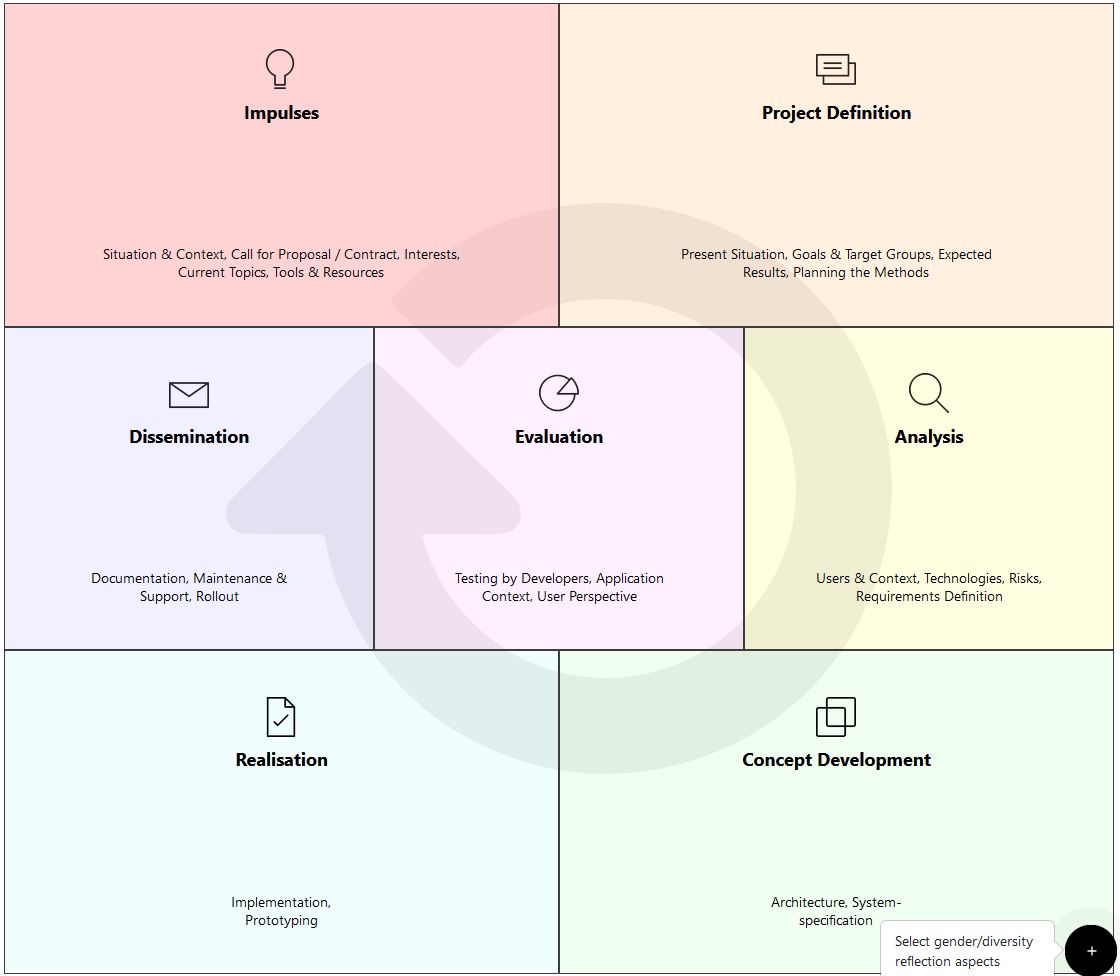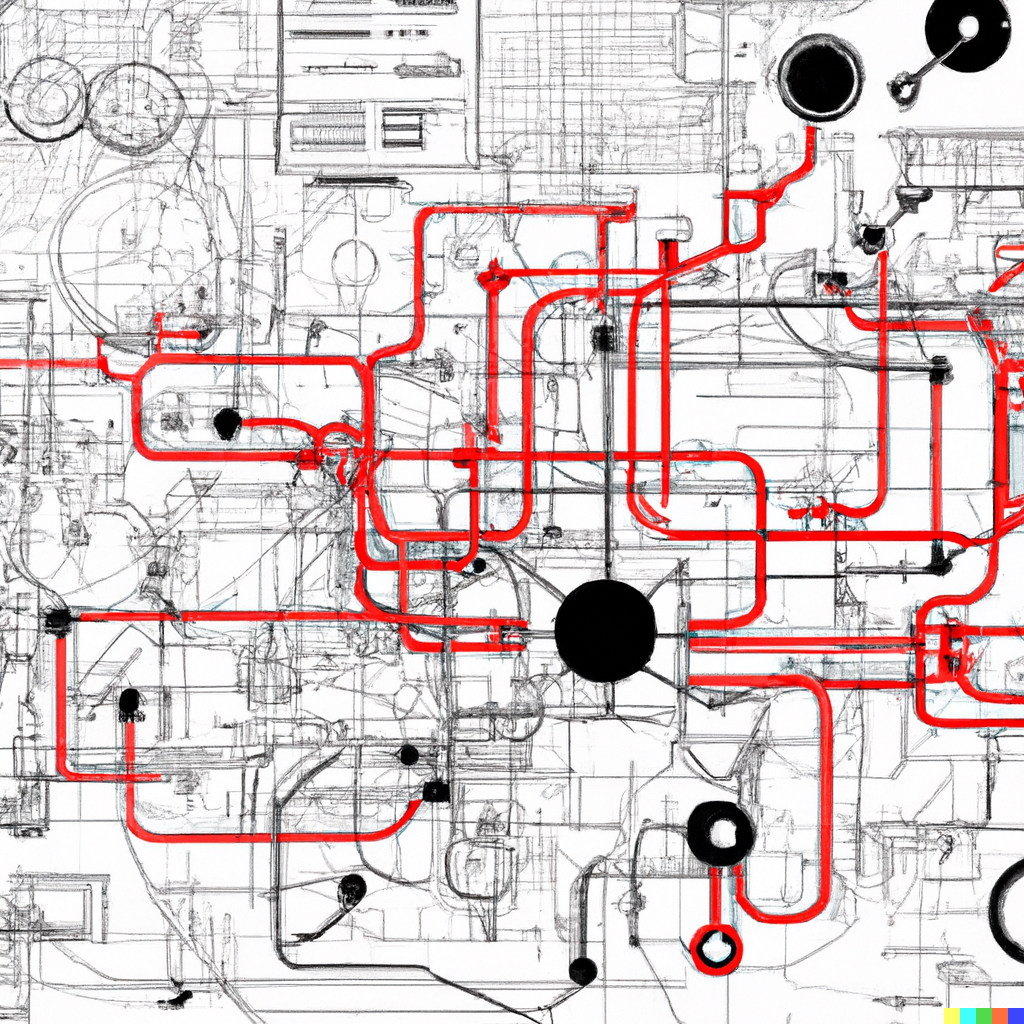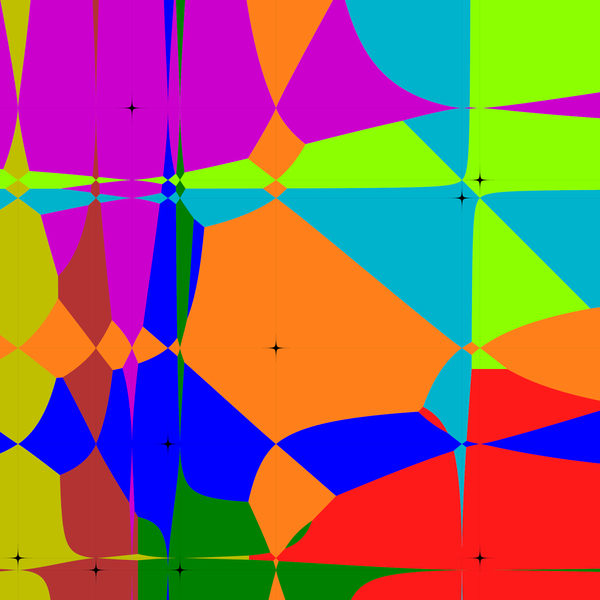Technical research and development are embedded in social contexts, afforded by stakeholders, their goals and interests, values and assumptions, and the social and professional structures they are part of. The choice of research topics and many development decisions start from rather general, standard assumptions about the people and situations, technical research and development are intended for.
The “Gender Extended Research and Development” (GERD) model is meant to broaden perspectives: to stimulate and facilitate an explicit reflection and consideration of social diversity in research and development of technical systems, products, and services.
As gender is a key factor and correlates with many aspects of diversity, the GERD model has been based on Gender Studies research. It links Informatics with Gender Studies thinking. The model names seven key phases in research and development that are traversed clockwise and at times repeatedly. Each phase is characterized by some typical activities with examples.
The whole process guided by eight “reflection aspects” that have been derived from basic concepts of Gender/Diversity Studies. Each aspect can be related to every research and development phase. For every such combination, questions have been formulated that help to include Gender/Diversity considerations. Due to the differing characteristics of the phases, the number of questions varies.
The GERD model is designed for use in the tech industry and related research fields. It provides knowledge and guidelines for teams across the proposed phases of research and development. Most of the examples used in the GERD model are European-centric and research focused. However, we envision the use of the model across all sectors globally, as a baseline for placing social diversity as key to research and development. We underscore the adoption of the model in relation to the social environment of the adoptive team.
If you would like to use the model for teaching or in your tech development team and require guidance, contact Claude Draude.
Publications
- Draude, Claude; Maaß, Susanne (2018): Making IT Work. Integrating gender research in computing through a process model. In: Proceedings of 4th Gender&IT conference, Heilbronn, Germany (GenderIT’18). ACM, New York, NY, USA, 8 pages.
- Draude, Claude; Maaß, Susanne; Wajda, Kamila (2014): GERD – ein Vorgehensmodell zur Integration von Gender/Diversity in die Informatik. In: Anja Zeising, Claude Draude, Heidi Schelhowe, Susanne Maaß (Hrsg.): Vielfalt der Informatik – Ein Beitrag zu Selbstverständnis und Außenwirkung. Staats- und Universitätsbibliothek Bremen. Pp. 197-283 (Chapter 4), Open-Access.



